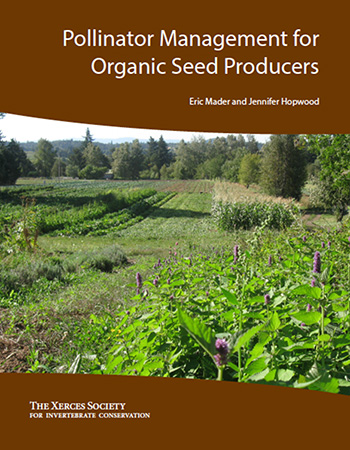This situation is further complicated by the biology of honey bees, which forage over wide areas and are transported long distances where they pollinate countless crops. In contrast, native bees, which forage over shorter distances, offer a functional alternative for seed producers to reduce the need for managed pollinators and to exercise greater control over their pollination needs.
Similarly, the tremendous diversity of organic crop varieties necessitates a wide range of pollinator species. Honey bees are valuable generalist pollinators that can be supplied in large numbers. On a bee-for-bee basis however, specialist native bees, such as squash bees in cucurbits and bumble bees in heirloom tomatoes, have been documented to significantly increase seed yield.
This project developed pollinator a conservation training program specifically tailored to the needs of organic seed producers, and a comprehensive handbook, Pollinator Management for Organic Seed Producers.

